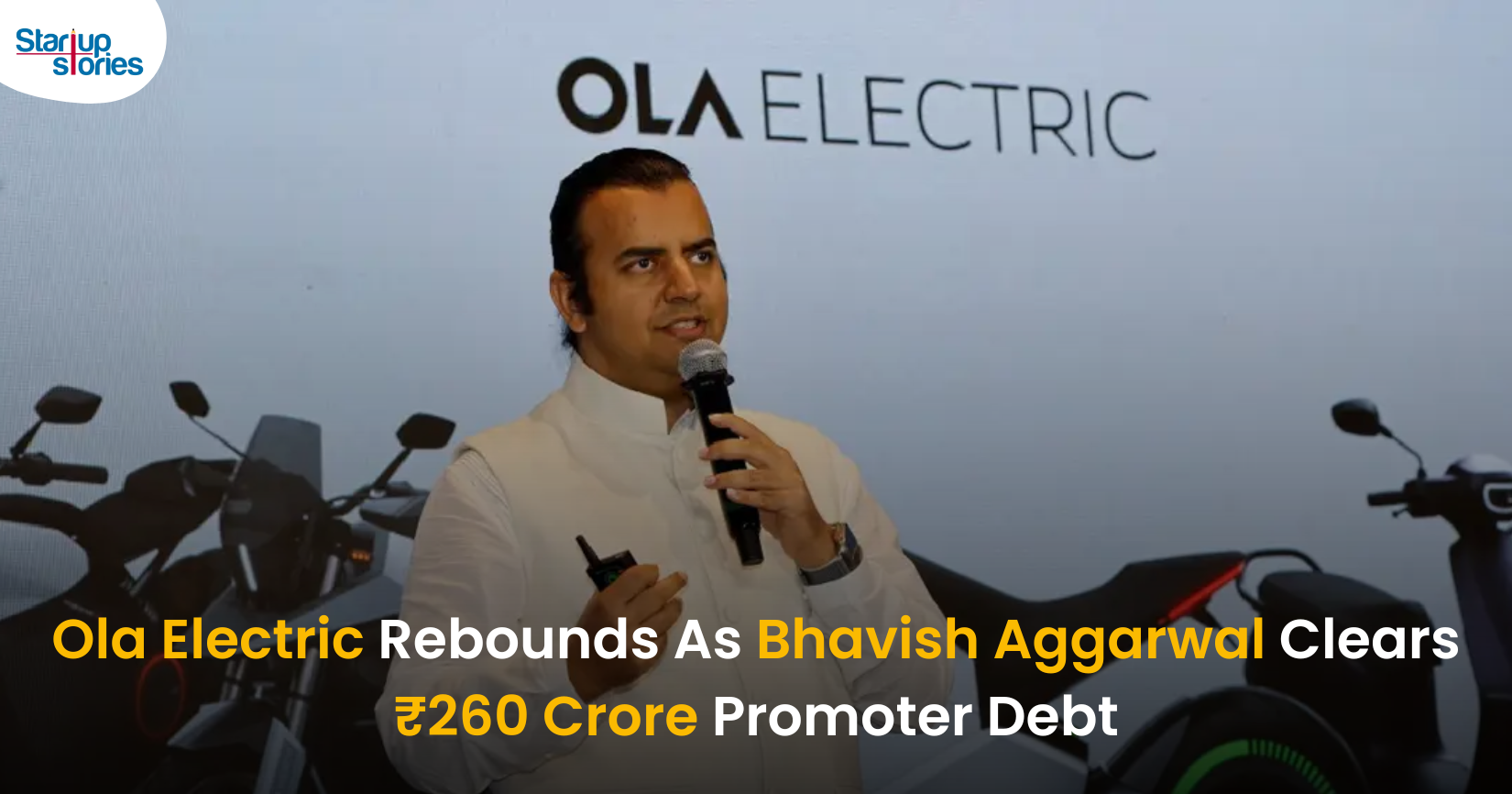Latest News
Andy Rubin’s Essential Spills Customer Data

Andy Rubin, also known as the father of Android, acknowledged in a blog post yesterday that a customer service glitch led to some customers’ personal information being shared with other customers. Rubins’s latest startup Essential Products is in the process of getting its first product, Essential smartphone out the door.
The glitch, which appeared last week, asked some customers buying the smartphone to send photo ID’s to verify their shipping address and complete their orders. These photo IDs which included drivers licenses and passports from approximately 70 customers was inexplicably forwarded to the whole list of customers.
In the blog post titled ‘An Acquired Taste,’ Rubin addressed the potential crisis describing how it is hard to be a founder and how thousands of micro decisions are required to keep the company laser focused. He went on to apologize for the error and ended the note with a promise to invest in infrastructure and customer care.
“Yesterday, we made an error in our customer care function that resulted in personal information from approximately 70 customers being shared with a small group of other customers. We have disabled the misconfigured account and have taken steps internally to add safeguards against this happening again in the future. We sincerely apologize for our error and will be offering the impacted customers one year of LifeLock. We will also continue to invest more in our infrastructure and customer care, which will only be more important as we grow.”
Essential is a tiny company with only 100 employees but an amateur error leading to data leak is never a good sign. Although the problem was resolved pretty early, Rubin did not provide additional information on how it will fix its shipment confirmation requirements. The founder and CEO of the startup took the entire blame personally and added that he continues to believe deeply in the innovation they are bringing to life via their Home, Phone and 360 Camera products. “Being a founder in an intensely competitive business means you occasionally have to eat crow. It’s humiliating, it doesn’t taste good and often, it’s a humbling experience,” he added.
The Essential smartphone was launched on 30 May this year and will reach customers very soon. The phone packs a 5.7 inch screen with a 2560 x 1312 resolution. It also packs a Qualcomm Snapdragon 835 processor backed by 4GB of RAM and 128GB of internal storage. One of the best features of this new age smartphone is that the phone works with a modular system as well, which lets users attach accessories such as a 360 degree camera and a wireless charging dock. But, similar to the Apple iPhone 7, Essential will not be supporting a 3.5mm headphone jack and neither will be it water resistant.
Latest News
Centre Mulls Revoking X’s Safe Harbour Over Grok Misuse

The Centre is weighing the option of revoking X’s safe harbour status in India after its AI chatbot Grok was allegedly misused to generate and circulate obscene and sexually explicit content, including material seemingly involving minors. The IT Ministry has already issued a notice to X, directing the platform to remove unlawful content, fix Grok’s safeguards, act against violators, and submit a detailed compliance report within a tight deadline. If the government finds X’s response inadequate, it could argue that the platform has failed to meet due‑diligence standards under Indian law, opening the door to harsher action.
Under Section 79 of the IT Act, safe harbour protects intermediaries like X from being held directly liable for user‑generated content, provided they follow due‑diligence rules and promptly act on legal takedown orders. Revoking this protection would mean X and its officers could be exposed to criminal and civil liability for obscene, unlawful, or harmful content that remains on the platform, including AI‑generated images from Grok. This prospect significantly raises X’s compliance risk in India and could force tighter moderation, stricter AI controls, and more aggressive removal of flagged posts.
The Grok episode also spotlights the regulatory grey zone around generative AI, where tools can create harmful content at scale even without traditional user uploads. Policymakers are increasingly questioning whether AI outputs should still enjoy the same intermediary protections as conventional user posts, especially when they involve women and children. How the government ultimately proceeds against X over Grok misuse could set a precedent for AI accountability, platform responsibility, and safe harbour interpretation in India’s fast‑evolving digital ecosystem.
Latest News
How Pronto Is Redefining 10-Minute Home Services in India with a $25 Million Fundraise

Home services startup Pronto is in advanced talks to raise about $25 million at a near-$100 million valuation, underscoring strong investor confidence in India’s fast-growing 10-minute home services market. This potential round would be the company’s third major funding milestone after its $2 million seed and $11 million Series A in 2025, backed by marquee investors such as General Catalyst, Glade Brook Capital, Bain Capital and new participant Epiq Capital. The fresh capital is expected to further strengthen Pronto’s positioning as a leading tech-led household help platform for urban consumers.
Pronto operates a 10-minute on-demand home-services platform that connects users with trained, background-verified workers for everyday tasks like sweeping, mopping, utensil cleaning, laundry and basic cooking. Using a hub-and-spoke, shift-based model, the startup stations workers at hyperlocal hubs, enabling sub-10-minute fulfilment and more predictable earnings compared to the informal domestic-help market. Founded in 2024 by Anjali Sardana and based in Delhi NCR, Pronto has already expanded from Gurugram into major cities such as New Delhi, Mumbai, Bengaluru and Pune, and is handling around 6,000 daily bookings with nearly 1,300 active professionals as of December 2025.
The upcoming $25 million fundraise is expected to be used to enter more metros, deepen presence in existing neighbourhoods with additional hubs and upgrade Pronto’s technology for smarter routing, shift planning and real-time operations. A significant portion of the capital will also go into training, retention and benefits for its workforce to maintain consistent service quality at scale, especially as competition heats up from rivals like Snabbit and Urban Company in the rapid home services space. This near-$100 million valuation not only validates Pronto’s model but also highlights a broader shift toward organised, tech-driven domestic-help solutions in India’s largely informal home-services market.
Latest News
Bhavish Aggarwal Sells ₹325 Crore Ola Electric Stake, Retains Control

Bhavish Aggarwal has sold Ola Electric shares worth about ₹325 crore over three consecutive trading sessions, primarily to fully repay a promoter-level loan of ₹260 crore and release all pledged promoter shares. Despite the stake sale, he continues to hold a significant shareholding of over 34 percent in Ola Electric, and the company has clearly stated that there is no change in promoter control or his long-term commitment to the business. This one-time, limited monetisation at the promoter’s personal level is positioned as a structural clean-up rather than a signal of reduced confidence in the company.
The transactions, executed through open-market bulk deals, included an initial sale of about 2.6 crore shares worth roughly ₹92 crore at an average price of ₹34.99 per share, followed by additional trades of around ₹142 crore and ₹90 crore, taking the total sale value to approximately ₹324–325 crore. As a result, Aggarwal’s stake has fallen by a little over 2 percent, while all previously pledged promoter shares about 3.93 percent of Ola Electric’s equity are being released, removing the overhang and risk typically associated with pledged stock. The company has also clarified that these deals do not involve any capital raise or dilution by Ola Electric itself, which is important for investors tracking promoter stake and governance.
The share sale came at a time when Ola Electric’s stock had been under pressure, even hitting an all-time closing low amid concerns around growth, competition and heavy promoter selling. However, once the company confirmed that the stake sale was complete and all promoter-level pledges would be cleared, the stock rebounded sharply, gaining around 9–10 percent as markets welcomed the removal of this technical overhang. For investors, the focus is now expected to shift back to Ola Electric’s core fundamentals EV sales growth, margins, and market-share performance in India’s two-wheeler EV segment while the reduced promoter debt risk and continued high promoter holding offer some comfort on long-term alignment.














谷歌蜘蛛池
November 6, 2025 at 5:43 pm
利用强大的谷歌蜘蛛池技术,大幅提升网站收录效率与页面抓取频率。谷歌蜘蛛池
MM88
November 8, 2025 at 10:56 pm
Khám phá thế giới giải trí trực tuyến đỉnh cao tại MM88, nơi mang đến những trải nghiệm cá cược thể thao và casino sống động.
J88
November 12, 2025 at 5:01 am
Đến với J88, bạn sẽ được trải nghiệm dịch vụ cá cược chuyên nghiệp cùng hàng ngàn sự kiện khuyến mãi độc quyền.
ios超级签
November 13, 2025 at 7:14 pm
苹果签名,苹果超级签平台,ios超级签平台ios超级签苹果企业签,苹果超级签,稳定超级签名
Kuwin
November 16, 2025 at 2:52 pm
kuwin sở hữu kho game đa dạng từ slot đến trò chơi bài đổi thưởng, mang đến cho bạn những giây phút giải trí tuyệt vời.
GO88
November 21, 2025 at 7:10 am
Tham gia cộng đồng game thủ tại Go88 để trải nghiệm các trò chơi bài, poker phổ biến nhất hiện nay.
iwin
November 23, 2025 at 1:54 am
iwin – nền tảng game bài đổi thưởng uy tín, nơi bạn có thể thử vận may và tận hưởng nhiều tựa game hấp
MM88
November 30, 2025 at 11:25 pm
Với giao diện mượt mà và ưu đãi hấp dẫn, MM88 là lựa chọn lý tưởng cho các tín đồ giải trí trực tuyến.